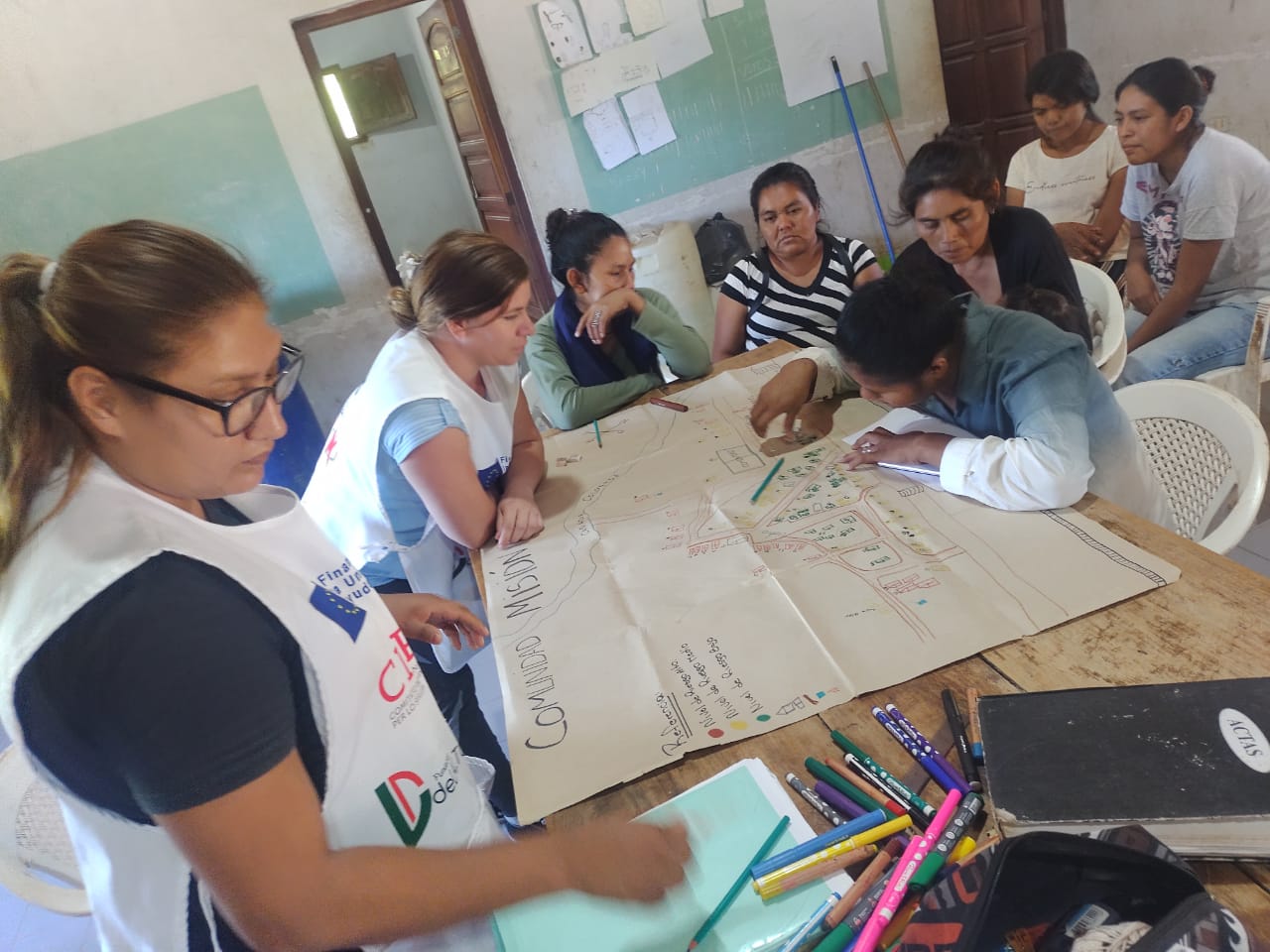Indigenous communities in Argentina participate in disaster risk management
By Fundación delALTO, Sphere’s new focal point in Argentina (originally in Spanish)
Through active participation, indigenous communities of the Argentine Gran Chaco are exercising their rights and contributing their ancestral knowledge to disaster risk management
The Gran Chaco Resiliente programme seeks to “increase preparation and coordination in the face of socio-environmental and health crises in municipalities with vulnerable indigenous populations in the Bermejo Basin of Argentina”. Implemented by Fundación delALTO, together with a consortium made up of the Fundación Para La Cohesión E Inclusión Social Del Pueblo Argentino (CISPA) and the Comité Internacional Para El Desarrollo De Los Pueblos (CISP), with financial support from DG ECHO, the programme is bringing about substantial changes through an ancestral knowledge- and rights-based approach to risk management of climate-related and other disasters.
Participatory approaches to working with local, provincial and national governments ensure a common understanding among different stakeholders leading to comprehensive and sustainable disaster risk management practices. With this participatory dynamic established, the knowledge of communities is valued in the development of early warning systems (EWS) in which the community plays a central role. EWSs developed in this way complement and combine ancestral indigenous knowledge with scientific and technological information, giving rise to more accurate and complete information, which is then available when responding in a timely and efficient manner in what can be complex and hostile contexts.

Indigenous communities, working in Community Emergency Operational Committees (CEOCs), prepare risk maps, action protocols and community plans that embody the principles of Sphere’s Humanitarian Charter and Protection Principles, and adapt Sphere’s Minimum Standards to their context, capacity and culture.
This knowledge is then made available to the communities, including as a university diploma, through training which is highly adapted to each ancestral territory, and which enables participation in planning and decision-making processes together with civil protections actors.
Fundación delALTO’s programme is helping to reduce the gender gap in communities where, until recently, women could not offer their opinions let alone be part of the decision-making process. There is now a Network of Indigenous Women which advises the Gestión Integral del Riesgo de Desastres (GIRD) on building community resilience. With contributions from the National Gender and Comprehensive Risk Management Programme and the National Secretariat of Federal Security Articulation, a Cartilla de Genero was recently presented in the GIRD. This ‘gender booklet’ presents cultural diversity and is based on learning and exchanges during implementation activities undertaken with the active participation of women in several communities.
Today, CEOCs have women’s areas, there are female presidents of CEOCs, and women have a strong voice in emergency planning and preparedness, supported by attentive project teams. Local risk maps incorporate the views of women, children, young people, and older adults, and are disaggregated by age and gender. All this community work is then incorporated into an unprecedented national platform which has been made possible by the Ministry of National Security.
As well as providing enriching experiences for humanitarian workers, this programme has identified synergies with the national government through the National Emergency Monitoring System (SINAME). Community risk maps are digitized and uploaded to a central platform where they are available for public consultation. With the technical support of the National Meteorological Service, the platform combines indigenous ancestral knowledge of different ethnicities with meteorological data. This allows us to look at the climate and the impacts of climate change from an ancestral perspective, facilitating deeper risk analysis and enabling traditional communities and the government to work and act together.
The Gran Chaco Resiliente programme stands out for being an initiative where the indigenous communities of Salta, Chaco and Formosa are all taking great steps forward to being better prepared and more resilient to future shocks.
Fundación delALTO joined Sphere’s focal point network in October 2023.
As their Gran Chaco Resiliente programme demonstrates, delALTO is true champion of Sphere, and makes a wonderful addition to Sphere’s dedicated and growing global network.
